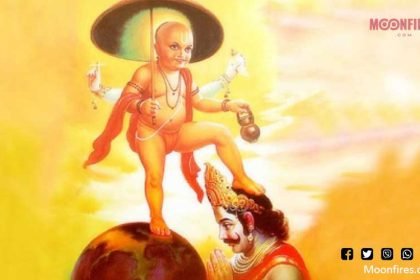Exploring the Ancient Roots of Karma: How the Ancient Indian Concept of Karma Still Applies Today
Karma is an ancient Indian concept that has been around for centuries. It is the belief that one’s actions have consequences, both in this life and in the afterlife. The concept of karma is based on the idea that our actions have an effect on our future, and that we are responsible for our own destiny. This concept has been embraced by many cultures and religions, and is still relevant today.
Karma is based on the idea of cause and effect. Every action we take has a consequence, and this consequence can be either positive or negative. If we do something good, we will receive positive consequences, and if we do something bad, we will receive negative consequences. This is the basis of the law of karma, which states that our actions have an effect on our future.
Karma is also closely linked to the concept of reincarnation. According to this belief, our actions in this life will determine our fate in the next life. If we do good deeds, we will be rewarded with a better life in the next life. Conversely, if we do bad deeds, we will be punished with a worse life in the next life. This is why it is important to be mindful of our actions and to strive to do good in this life.
Karma is also closely linked to the concept of dharma, which is the path of righteousness. Dharma is the path of living a life of virtue and morality. It is believed that if we follow the path of dharma, we will be rewarded with good karma in this life and in the afterlife.
Karma is an ancient concept that is still relevant today. It is a reminder that our actions have consequences, both in this life and in the afterlife. It is also a reminder to be mindful of our actions and to strive to do good in this life. By following the path of dharma, we can ensure that we will be rewarded with good karma in the future.
The Science Behind Karma: How Our Actions Affect Our Lives and the Lives of Others
Karma is a concept that has been around for centuries, and it is often used to explain why certain events happen in our lives. The idea is that our actions have consequences, and that these consequences can affect our lives and the lives of others. This concept is based on the law of cause and effect, which states that for every action, there is an equal and opposite reaction.
At its core, karma is a form of energy that is created by our thoughts, words, and actions. This energy is then sent out into the universe, where it can have a positive or negative effect on our lives. For example, if we do something kind for someone, we may receive a positive reaction in return. On the other hand, if we do something hurtful, we may experience negative consequences.
The science behind karma is based on the idea that our actions create vibrations that can be felt by others. These vibrations can be seen as a type of energy that is sent out into the universe. This energy can then be absorbed by other people, and it can have an effect on their lives.
The law of cause and effect is also closely related to karma. This law states that for every action, there is an equal and opposite reaction. This means that if we do something positive, we will receive a positive reaction in return. Conversely, if we do something negative, we will experience negative consequences.
Karma is a powerful concept that can have a profound effect on our lives. By understanding the science behind it, we can learn to make better decisions and create positive vibrations that can be felt by others. In doing so, we can create a better world for ourselves and those around us.
The Power of Positive Karma: How to Create Good Karma and Reap the Benefits in Your Life
Karma is a powerful force that can shape our lives in profound ways. It is the law of cause and effect, where our actions have consequences that can either be positive or negative. By understanding the power of positive karma, we can create good karma and reap the benefits in our lives.
The first step to creating positive karma is to be mindful of our thoughts and actions. Every thought and action we take has an effect on the world around us. When we act with kindness and compassion, we create positive energy that can be felt by those around us. This energy can be used to attract positive experiences and opportunities into our lives.
The second step is to practice gratitude. Gratitude is a powerful tool that can help us to appreciate the good things in our lives. When we express gratitude, we create a positive energy that can attract more good things into our lives.
The third step is to be generous. Generosity is a great way to create positive karma. When we give to others, we create a ripple effect of positive energy that can be felt by those around us. This energy can be used to attract more good things into our lives.
Finally, we should strive to be mindful of our words and actions. Our words and actions have a powerful effect on the world around us. When we speak and act with kindness and compassion, we create positive energy that can be felt by those around us. This energy can be used to attract positive experiences and opportunities into our lives.
By understanding the power of positive karma, we can create good karma and reap the benefits in our lives. By being mindful of our thoughts and actions, practicing gratitude, being generous, and being mindful of our words and actions, we can create a positive ripple effect that can be felt by those around us. This positive energy can be used to attract more good things into our lives.
Conclusion
Karma is a powerful force that can shape our lives and our destinies. It is a law of cause and effect that can bring both positive and negative consequences depending on our actions. It is important to remember that our actions have consequences and that we should strive to do good in order to reap the rewards of karma. Ultimately, karma is a reminder that we are all connected and that our actions have an impact on the world around us.














